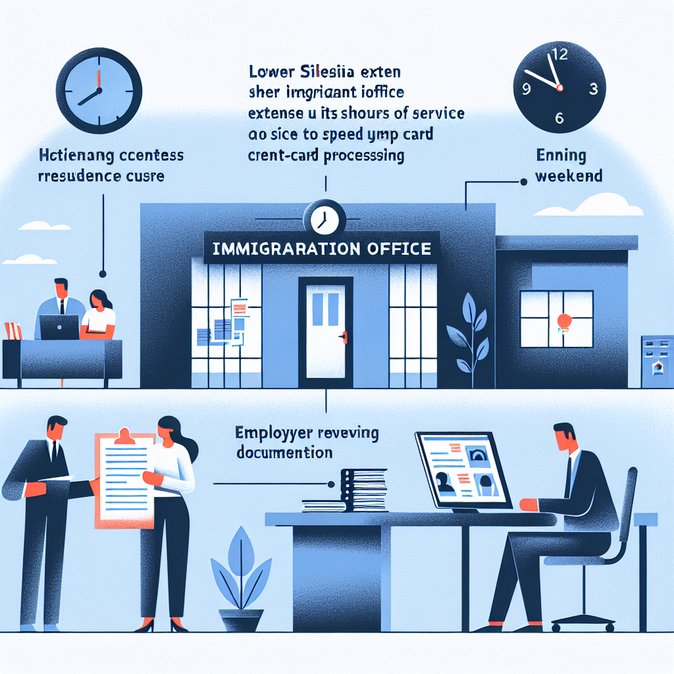
The Lower Silesian Voivode announced on October 23 2025 a series of ‘information evenings’ for third-country nationals at the Wrocław immigration centre. Extra counters will operate from 16:00 to 18:00 on 7, 9, 21 and 23 October, with Saturday clinics on 18 and 25 October, as part of an EU-funded FAMI project aimed at shortening waiting times for residence-card issuance.
Officials say the average processing queue for temporary-residence cards in the region—home to major automotive and electronics clusters—stands at 11 months, well above the statutory 60-day target. The ad-hoc sessions will allow applicants to submit fingerprints, collect ready cards and receive legal counselling without taking time off work.
Employers employing non-EU staff in Wrocław, Legnica and Wałbrzych have long complained that delays force them to rely on interim visa extensions. HR departments are urged to pre-book slots for affected employees and to prepare complete documentation, as incomplete files will be turned away.
The Voivode’s office hinted that if turnout is high the model could be rolled out to other provinces in 2026. Mobility stakeholders welcome the pilot but stress that systemic digitalisation—as already introduced for work-permit filings nationwide—is still needed for residence permits.
Foreign employees attending the sessions are reminded to bring proof of health insurance and updated tenancy contracts, which are the main causes of rejections this year, according to case-workers.
Officials say the average processing queue for temporary-residence cards in the region—home to major automotive and electronics clusters—stands at 11 months, well above the statutory 60-day target. The ad-hoc sessions will allow applicants to submit fingerprints, collect ready cards and receive legal counselling without taking time off work.
Employers employing non-EU staff in Wrocław, Legnica and Wałbrzych have long complained that delays force them to rely on interim visa extensions. HR departments are urged to pre-book slots for affected employees and to prepare complete documentation, as incomplete files will be turned away.
The Voivode’s office hinted that if turnout is high the model could be rolled out to other provinces in 2026. Mobility stakeholders welcome the pilot but stress that systemic digitalisation—as already introduced for work-permit filings nationwide—is still needed for residence permits.
Foreign employees attending the sessions are reminded to bring proof of health insurance and updated tenancy contracts, which are the main causes of rejections this year, according to case-workers.





